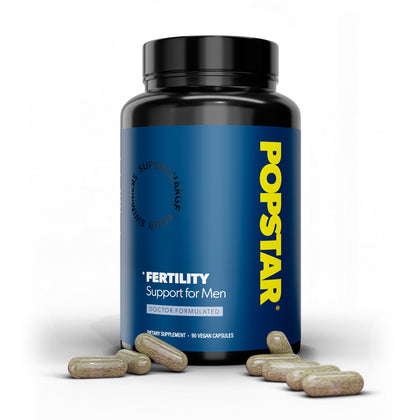

In the realm of reproductive health, the role of essential nutrients cannot be overstated. Zinc is a micronutrient that has gained significant attention for its pivotal role in sperm health. Zinc is often dubbed as the "male mineral." It plays a crucial role in various physiological processes within the male reproductive system, making it an indispensable element for sperm production and fertility. This article delves into the intricate relationship between zinc and sperm health, exploring its mechanisms, sources, and the implications of zinc deficiency on male fertility.
Understanding the Role of Zinc in Sperm Health
Zinc is an essential trace element that acts as a cofactor for numerous enzymes involved in various biochemical pathways crucial for sperm development, maturation, and function. Zinc is highly concentrated within the testes, particularly in the seminal plasma and spermatozoa, highlighting its significance in male reproductive physiology. Some of the critical roles of zinc in sperm health include:
Spermatogenesis
Zinc plays a fundamental role in the process of spermatogenesis, the production of mature sperm cells from precursor germ cells. It regulates gene expression, DNA synthesis, and cell division, all essential for the proliferation and differentiation of germ cells into functional spermatozoa.
Sperm Motility and Function
Zinc influences sperm motility, morphology, and membrane stability. It helps maintain the structural integrity of sperm cells, ensuring optimal motility and the ability to penetrate the egg during fertilization. Additionally, zinc is involved in the synthesis of testosterone, the primary male sex hormone, which further contributes to sperm production and quality.
Antioxidant Defense
Sperm are highly susceptible to oxidative stress due to polyunsaturated fatty acids in their membrane and the high metabolic activity required for motility. Zinc acts as a potent antioxidant, protecting sperm cells from oxidative damage by scavenging free radicals and reducing oxidative stress, thereby preserving sperm viability and DNA integrity.
Zinc Deficiency and Male Fertility:
Inadequate zinc intake or absorption can lead to zinc deficiency, which can have detrimental effects on male fertility. Zinc deficiency has been associated with a range of reproductive issues, including:
Impaired Spermatogenesis
Insufficient zinc levels can disrupt the process of spermatogenesis, leading to reduced sperm production, abnormal sperm morphology, and impaired sperm motility.
Increased Oxidative Stress
Zinc deficiency diminishes the body's antioxidant defense mechanisms, resulting in increased oxidative stress within the reproductive system. Elevated levels of oxidative stress can damage sperm DNA, impair sperm function, and compromise fertility.
Hormonal Imbalance
Zinc is essential for the synthesis and regulation of testosterone, the hormone critical for male reproductive function. Zinc deficiency can disrupt testosterone production, leading to hormonal imbalances that negatively impact sperm production and quality.

Sources of Zinc and Dietary Recommendations:
To maintain optimal zinc levels and support sperm health, it's crucial to incorporate zinc-rich foods into the diet. Excellent food sources of zinc include:
Shellfish (oysters, crab, shrimp)
Red meat (beef, lamb, pork)
Poultry (chicken, turkey)
Legumes (beans, lentils, chickpeas)
Nuts and seeds (pumpkin seeds, cashews, almonds)
Whole grains (quinoa, oats, brown rice)
Dairy products (milk, cheese, yogurt)
In addition to dietary sources, zinc supplements may be recommended for individuals at risk of deficiency, such as those with limited dietary intake, malabsorption disorders, or specific medical conditions. Popstar Fertility contains Zinc for fertility support.
Zinc plays a crucial role in maintaining male reproductive health, particularly concerning sperm production, quality, and fertility. Its multifaceted functions within the male reproductive system underscore the importance of adequate zinc intake for optimal sperm health. By understanding the link between zinc and sperm health and incorporating zinc-rich foods into the diet, men can support their reproductive well-being and enhance their chances of fertility. Nonetheless, for individuals experiencing fertility issues or concerns related to zinc deficiency, consulting with a healthcare provider is paramount to receive personalized guidance and support.





